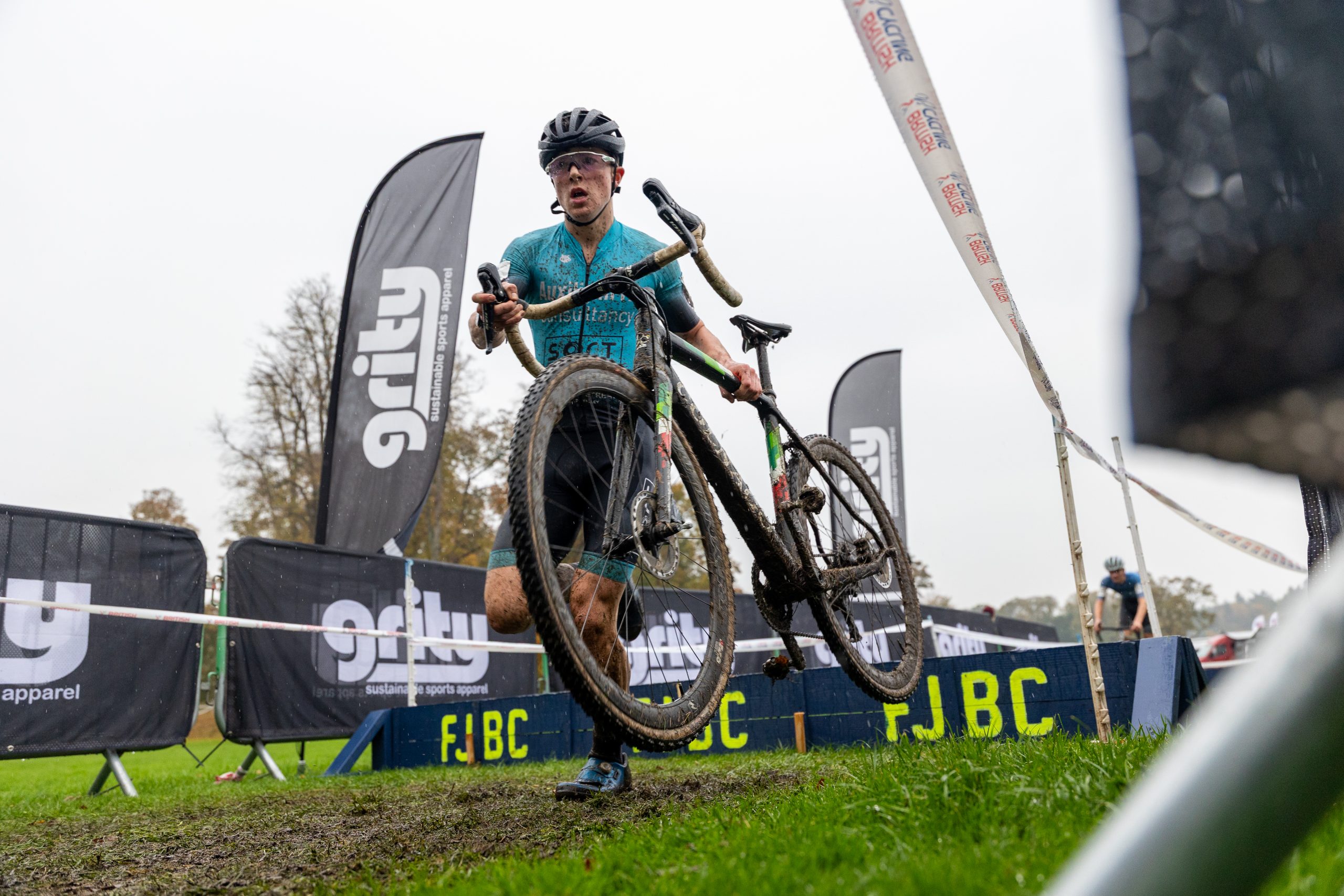Round Two of the Lloyds Cyclo-cross National Trophy Series in Falkirk turned into a great example of what can happen when event organisers are supported to try out new ideas. Thanks to backing from the British Cycling Accelerate Sustainability Fund, the organising team used the weekend to test a range of practical changes that cut down on waste and made the event run more smoothly. Nothing they tried was complicated or expensive, but together the ideas showed how achievable greener events can be for clubs right across the country.
One of the biggest successes came from switching to reusable cable ties. A typical National Trophy round gets through well over a thousand single use ties, so the organisers bought 1,000 reusable ones and used them around the venue for scrim and signage. It immediately reduced the amount of plastic being thrown away, and many volunteers said it was the first time they’d even seen reusable cable ties. They proved handy too, when something needed to be moved, the ties could simply be unclipped rather than cut off. They weren’t perfect for everything, especially when used on metal barriers in windy conditions, but most were collected afterwards and will now be reused at future events.
The team also tried a hydrogen generator for event HQ instead of a petrol one. It made a noticeable difference: no fumes, no noise and a far nicer working environment for volunteers charging radios and phones. The particular generator available for this event didn’t have enough power for appliances like kettles, but more powerful models do exist, and the organisers said they would happily use one again. For smaller events with modest power needs, hydrogen generators could be a simple way to reduce emissions and improve the atmosphere around event HQ.
Another change came in the form of reusable race numbers for the under 8, 10 and 12 categories. These were pinned to jerseys instead of being cable-tied to bikes, removing another small but steady source of single-use plastic. Collecting the numbers at the finish did take a bit more coordination, and some of the younger riders were understandably keen to keep theirs, but the reduction in waste and the fact the numbers can be used again makes this a promising option for future youth races.
Recycling was one area that didn’t go exactly to plan. Much of the cardboard from food vendors ended up contaminated, and even the clean cardboard collected became soaked by rain and morning dew. It highlighted a simple lesson for future events: recycling needs a sheltered space of its own, ideally a gazebo where materials can stay dry and be sorted properly throughout the weekend.
Out on the course, the organisers increased the amount of wooden posts and scrim, removing the need for roughly a kilometre of course tape. Not only did this cut down waste, but it also gave the course a smarter, more European feel. It did take more time and effort to set up, but the difference was worth it.
Along with these funded ideas, the team made lots of smaller decisions; reusing old signage, repurposing equipment and cutting back on packaging wherever possible. None of these changes were dramatic, but together they made a real difference.
Falkirk showed that sustainability in cycling events doesn’t need to be complicated. With a bit of support and some willingness to try new approaches, clubs can make big steps forward. With round two of the British Cycling Accelerate Sustainable Events Fund now open, Scottish Cycling encourages clubs and event organisers to put their ideas forward.

